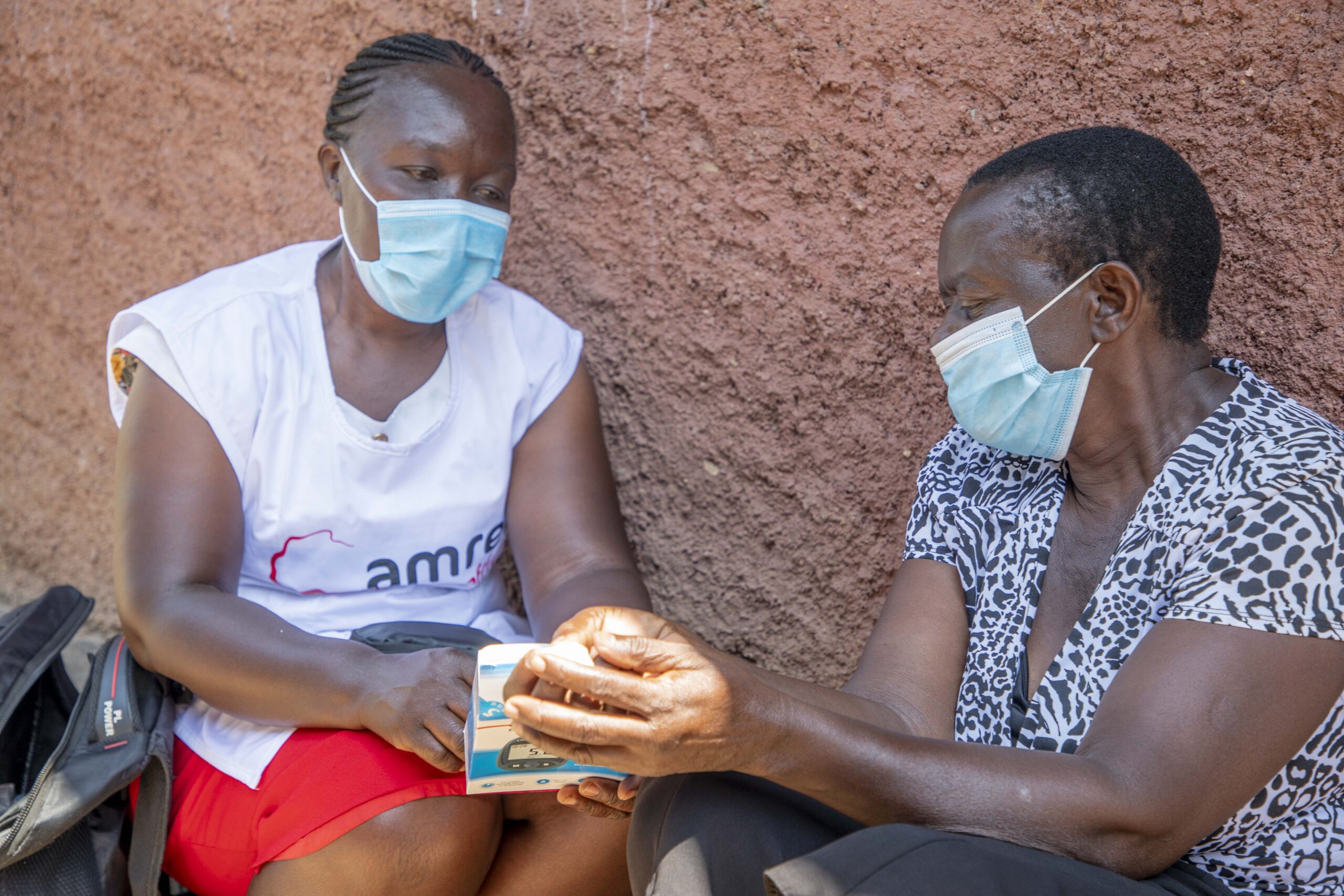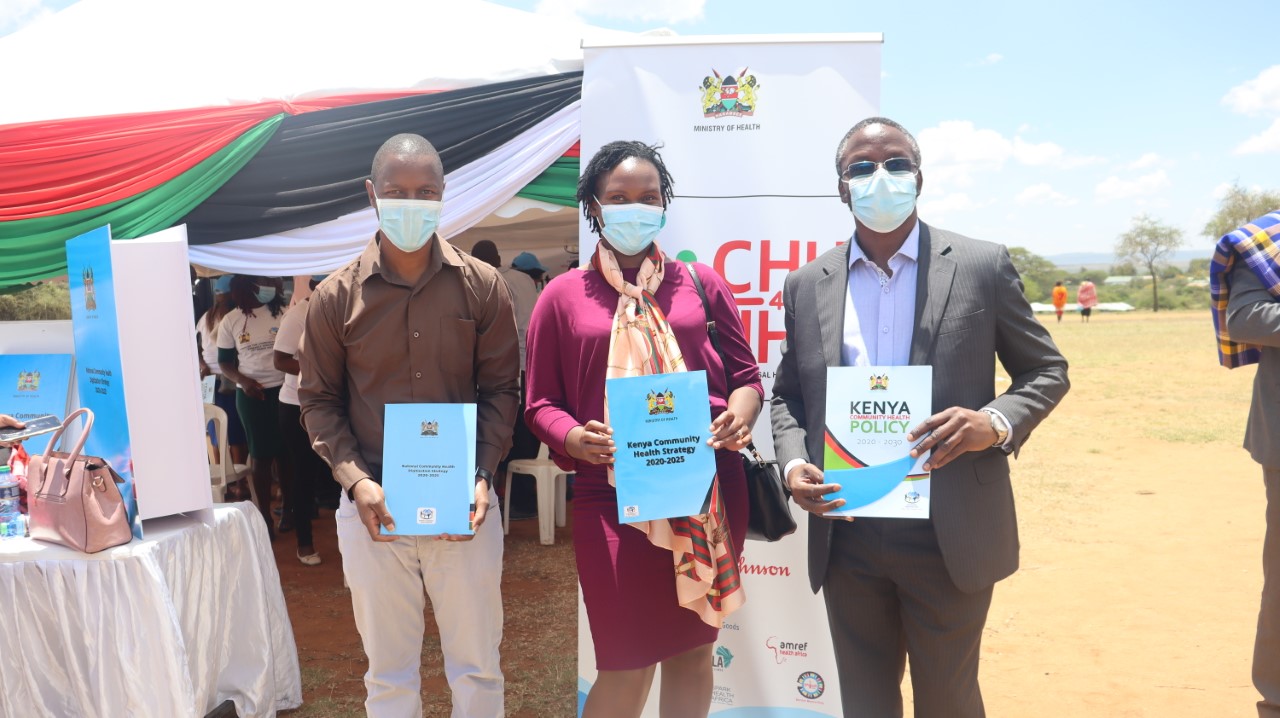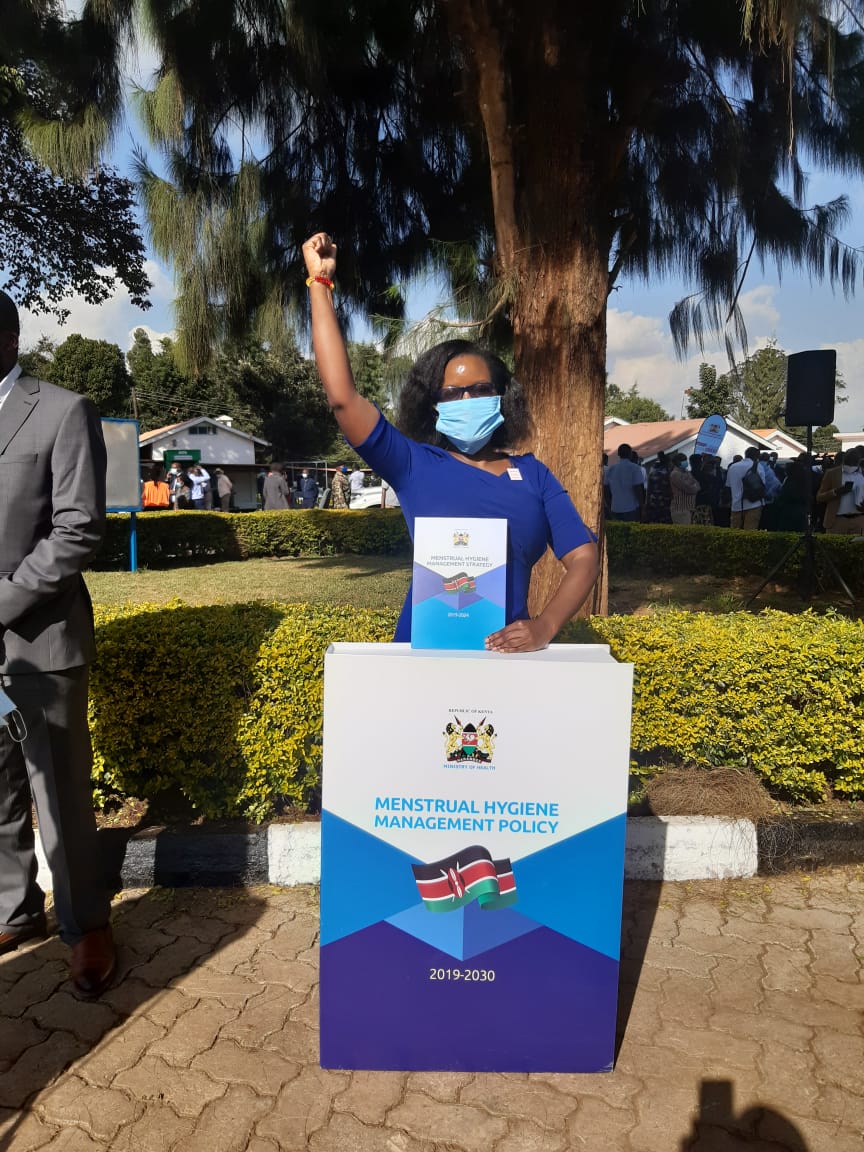Community Health Workers (CHWs) enhance health service delivery in Western Kenya
Monday, 30 November, 2020

Through the Global Fund grant, Amref Health Africa in Kenya has been implementing community case management of malaria model in 10 counties in Western Kenya from 2012 to 2020. Eight of these (Bungoma, Busia, Kakamega, Vihiga, Kisumu, Siaya, Homabay, Migori) fall within the malaria lake endemic zone while two (Kisii and Nyamira) fall in the highlands epidemic-prone malaria zone.
Following the WHO recommendations, most African countries scaled up Community Case Management of Malaria as an integral part of their health care delivery system, enhancing community access to health care by providing services at household and community levels. As a result, malaria burdened countries such as Kenya adopted Community Case Management as an approach to improve access to prompt and effective malaria case management in communities. This approach entails the training and supervision of community health workers (CHWs) to provide prompt and adequate treatment to fever cases within 24 hours to help reduce morbidity and mortalities due to malaria.
Specifically, the CHWs have proved to contribute immensely to health care services at level one and two in Kenya.
Congestion at link health facilities has reduced especially from malaria cases. The CHWs besides identifying, testing and treating malaria cases go an extra mile to sensitize community members on how to prevent malaria and other diseases. CHWs contribute immensely to behaviours change through their community outreach, educating members on how to keep themselves safe and what preventative measures they have to undertake before and even when they fall ill. This way there would be a reduced number of patients seeking health services at health facilities.
There was also reported reduced malaria cases in the facilities; improved health lifestyles owing to a positive health behaviour change facilitated by health talks and educative sessions that CHWs have undertaken at the household level.
Additionally, The CHWs have helped health facilities to achieve target indicators such as 4th Antenatal care (ANC), tracing defaulters among others. They have also contributed to reduced malaria complications due to prompt identification of cases that are treated in time or referred to link health facilities.
These segment of health workers not only handle malaria cases but other situations such as water and sanitation issues for instance (construction of toilets, use of toilets, personal hygiene, dietetics/nutrition etc), gender-based violence (GBV) resolution, TB defaulter tracing, HIV support groups, first aid, jigger control, immunization defaulters, ANC/family planning referrals among others.
A community unit (CU) in Gucha Sub-County had gone an extra mile by championing the plight of the less privileged people in their community and an example was presented where a father had abandoned his responsibilities to fend for his family. Working in collaboration with the administrative organ of the government, got the children enrolled in the nearby school. They also contribute to needy cases such as repair of delipidated houses, construction of toilets among other things. They believe that a healthy family is a health community which can transform to improved economic activities hence better life for all.
Health seeking behaviour change has been evident as reported by some CHWs. For example, it was reported that initially, some community members would associate all sickness to witchcraft. This misconception made a number of community members not to seek health services. With health education and regular household visits, this has changed.
It is clear that the CHWs play a critical role in the dissemination of information and the education of community members for improved health outcomes. It Is for this reason, that I opine, there is an urgency in integrating them into the health ecosystem to achieve universal coverage for all.
Author:
Enock Marita
Knowledge Management/Research Officer
Amref Health Africa in Kenya





Comments
No comments found.